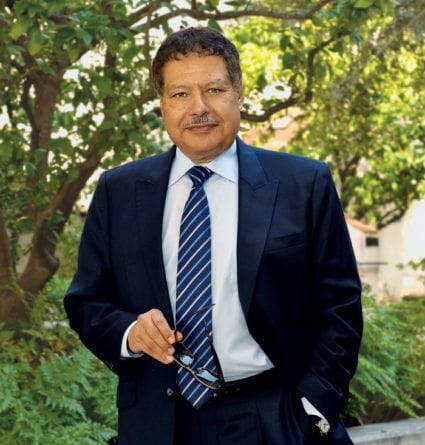Ahmed Zewail, winner of the 1999 Nobel Prize and the 2011 Priestley Medal, is dead at the age of 70. The former associate editor of The Journal of Physical Chemistry and former Linus Pauling Professor of chemistry and professor of physics at the California Institute of Technology leaves behind a legacy of groundbreaking science and […]


Ahmed Zewail, winner of the 1999 Nobel Prize and the 2011 Priestley Medal, is dead at the age of 70. The former associate editor of The Journal of Physical Chemistry and former Linus Pauling Professor of chemistry and professor of physics at the California Institute of Technology leaves behind a legacy of groundbreaking science and important diplomatic work.
Zewail is known for pioneering the field of femtochemistry within ultrafast laser spectroscopy. He also published important studies on using ultrafast electron microscopy for imaging molecules. Outside the lab, he served on President Obama’s Council of Advisors on Science & Technology. He was an advocate for science but also worked for peaceful political change in his native Egypt following the Arab Spring uprisings of 2011.
In addition to the many awards he received over the years, ACS honored Zewail by naming an award after him in 2005. The Ahmed Zewail Award in Ultrafast Science and Technology is awarded each year in recognition of “outstanding and creative contributions to fundamental discoveries or inventions in ultrafast science & technology in areas of physics, chemistry, biology, or related fields.”
In all his roles, Zewail was a tireless advocate for chemistry. As he said in his 2011 Priestley Medal acceptance speech, “Our field can and should remain a fundamental science, providing new tools and defining new concepts, but with its lens focused on significant questions in emerging areas of complexity, from nanoscience to physical biology. The cause is helped if more champions articulate the beauty of chemistry’s fundamentals and the big picture of its mission, globally and in the U.S. We should look ahead, unswayed by pressures of fads or funding, and be driven by our own curiosity.”
Read an adaptation of Zewail’s Nobel lecture in J. Phys Chem. A.